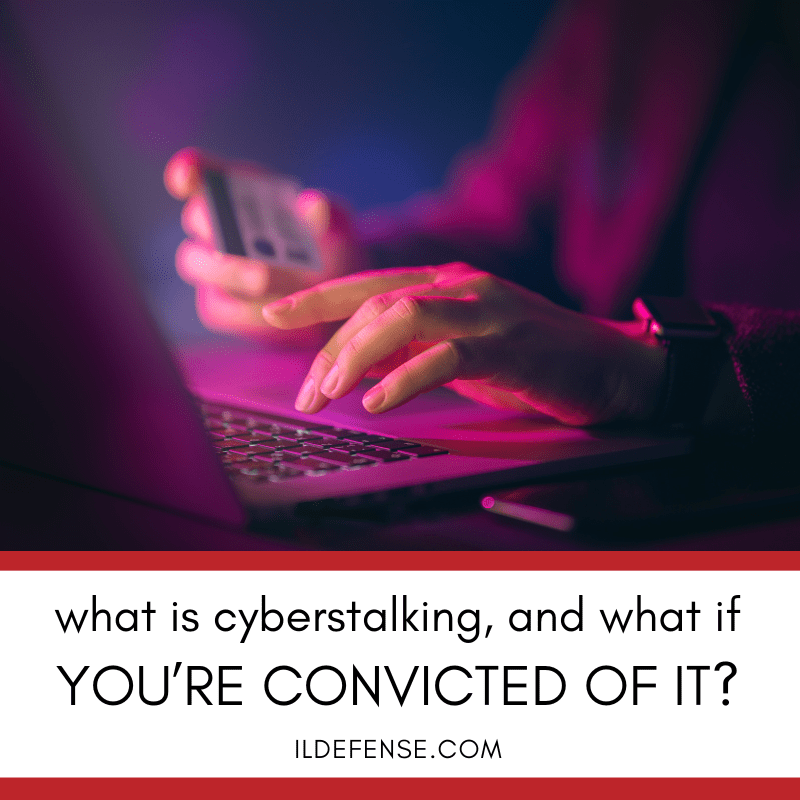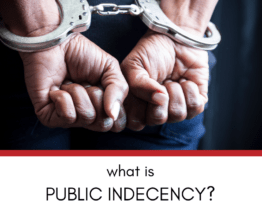
Cyberstalking is a serious offense in Illinois, involving the use of electronic communication to harass, threaten, or intimidate someone. Depending on the severity of the case, it can result in felony charges and carry severe penalties. Understanding how Illinois law defines cyberstalking and what to expect if you’re accused is essential. A Chicago criminal defense lawyer can help you navigate these charges and build a strong defense.
What is Cyberstalking, and What Happens if You’re Convicted of It?
This guide explains the following:
- How Illinois law defines cyberstalking
- Examples of actions that constitute cyberstalking
- Penalties for a cyberstalking conviction
- Legal defenses for cyberstalking charges
- How a Chicago criminal defense lawyer can assist
Here’s a closer look at each.
How Illinois Law Defines Cyberstalking
Under Illinois law, cyberstalking occurs when someone uses electronic communication, such as email, social media, or text messages, to harass or threaten another person. Cyberstalking involves repeated, unwanted behavior that causes emotional distress, fear for personal safety, or harm to another person’s property.
The law also covers instances where electronic communication is used to monitor or track someone’s activities without their consent.
Examples of Actions That Constitute Cyberstalking
Cyberstalking can take many forms, including:
- Sending repeated, threatening messages to someone via email or social media
- Posting false or harmful information about a person online to damage their reputation
- Using GPS tracking or other technology to monitor someone’s location without their knowledge
- Repeatedly contacting someone against their wishes, even after being asked to stop
Even actions that might seem minor can lead to charges if they are part of a pattern of harassment or intimidation.
Penalties for a Cyberstalking Conviction
Cyberstalking is typically charged as a felony in Illinois. A conviction can result in:
- Prison time, often ranging from 1 to 3 years for a Class 4 felony or up to 7 years for a Class 2 felony if aggravating factors are involved
- Fines, which can reach thousands of dollars
- A permanent criminal record, which can affect employment and housing opportunities
In addition to criminal penalties, the court may issue an order of protection requiring you to cease all communication with the victim. Violating this order can lead to additional charges.
Legal Defenses for Cyberstalking Charges
If you’re accused of cyberstalking, there are several legal defenses that may apply, depending on the circumstances of your case. Common defenses include:
- Lack of intent: Demonstrating that your actions were not intended to harass, intimidate, or threaten the alleged victim.
- Mistaken identity: Showing that you were not the person responsible for the electronic communications in question.
- Consent: Proving that the alleged victim consented to the communication or behavior in question.
Your lawyer can analyze the evidence, identify weaknesses in the prosecution’s case, and develop a defense strategy tailored to your situation.
How a Chicago Criminal Defense Lawyer Can Assist
A Chicago criminal defense lawyer can help you understand the charges against you, evaluate the evidence, and build a strong defense. They can negotiate with prosecutors, challenge the admissibility of electronic evidence, and advocate for reduced charges or dismissal when appropriate.
Your lawyer will also ensure your rights are protected throughout the legal process, giving you the best chance at a favorable outcome.
FAQ About Cyberstalking Charges
Check out these commonly asked questions about cyberstalking charges in Illinois. If you don’t see your question here, please call our office and we’ll find you the answers you need.
What Is the Difference Between Cyberstalking and Harassment?
While harassment involves unwanted behavior, cyberstalking specifically involves the use of electronic communication to intimidate, threaten, or monitor someone.
Can Cyberstalking Be Charged as a Misdemeanor?
No. In Illinois, cyberstalking is typically charged as a felony due to its serious nature and potential to cause harm.
What Should I Do If I’m Accused of Cyberstalking?
Contact a lawyer immediately. Avoid communicating with the accuser and refrain from posting anything on social media that could be used against you.
Can Electronic Evidence Be Challenged in Court?
Yes. A lawyer can challenge the admissibility of electronic evidence by questioning its authenticity, reliability, or how it was obtained.
How Can a Lawyer Help With Cyberstalking Charges?
A lawyer can analyze the evidence, develop a defense strategy, and negotiate with prosecutors to reduce charges or seek a dismissal.
Cyberstalking charges can carry severe penalties, making it crucial to understand your rights and options under Illinois law. Whether you’re facing a felony, having an experienced Chicago criminal defense lawyer on your side can make all the difference in protecting your future.
Do You Need to Talk to an Attorney?
If you’ve been accused of a crime, we may be able to help you – and don’t worry: It’s completely confidential. Call us at 847-920-4540 or fill out the form below to schedule your free, private consultation with an experienced and skilled Chicago criminal defense attorney now.
Contact Us
"*" indicates required fields









